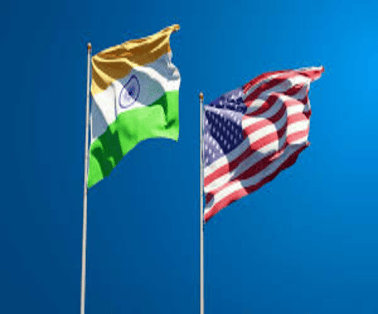The Office of the United States Trade Representative (USTR) released its 2024 Special 301 Report, which places India once again on the ‘priority watch list’ for issues related to intellectual property laws. This report evaluates the enforcement of IP protection across over 100 countries and identifies countries with inadequate intellectual property enforcement systems.
Key Highlights of the 2024 Special 301 Report
- This annual report details USTR’s findings in a review of more than 100 trading partners
- USTR removed the Dominican Republic from the Watch List this year for significant progress on addressing concerns with IP enforcement and transparency
- USTR also removed Uzbekistan from the Watch List this year due to sustained progress on long-standing issues pertaining to IP protection and enforcement.
- The Special 301 review of Ukraine continues to be suspended due to Russia’s full-scale invasion of Ukraine in February 2022.
Intellectual Property Laws Challenges in India
- India was placed along with China, Russia, Venezuela, and three others, for alleged problems related to IP protection and enforcement
- India has consistently been placed on the ‘priority watch’ list in the Special 301 Report, indicating significant concerns regarding IP protection, enforcement, and market access for American IP stakeholders.
- As per the report, India remains one of the most challenging major economies concerning IP protection and enforcement.
- The USTR report identifies various shortcomings in India’s IP enforcement, including high rates of online piracy, a significant backlog in trademark opposition cases, and insufficient legal mechanisms for protecting trade secrets.
- High customs duties on IP-intensive products and concerns over whether India has an effective mechanism for the early resolution of potential pharmaceutical patent disputes.
- India still needs to fully implement the WIPO Internet Treaties and ensure that copyright statutory licences do not extend to interactive transmissions
- While some progress has been noted under the US-India Trade Policy Forum regarding issues like trademark infringement investigations and pre-grant opposition proceedings, several longstanding concerns remain unaddressed.
- India’s stance is that its laws are in strict adherence to the World Trade Organisation’s Trade-Related Aspects of Intellectual Property Rights (TRIPS) Agreement, and it is not obligated to make changes as per other international rules.
The Special 301 Report and Its Impact
- It is prepared annually by the Office of the United States Trade Representative (USTR) that identifies trade barriers to United States companies and products due to the intellectual property laws, such as copyright, patents and trademarks, in other countries.
- The USTR considers factors like the severity of IP concerns, the economic impact on US rights holders, and the lack of progress made in addressing identified issues when designating countries to the PWL or Watch List.
- USTR conducts this review pursuant to Section 182 of the Trade Act of 1974, as amended by the Omnibus Trade and Competitiveness Act of 1988 and the Uruguay Round Agreements Act.
- It was first published in 1989.
Main Categories Of The Special 301 Report
- “Priority Watch List” and “Watch List” countries are identified by the annual Special 301 Report.
- Priority Watch list countries are judged by the USTR as having “serious intellectual property rights deficiencies” that require increased USTR attention.
- The USTR may initiate formal trade investigations or impose sanctions if they fail to demonstrate significant improvements.
- Watch List countries have been identified by the USTR as having “serious intellectual property rights deficiencies” but are not yet placed on the “Priority Watch list”.
- The USTR can move countries from one list to the other, or remove them from the lists, throughout the year
What Is Intellectual Property?
- It is a category of property that includes intangible creations of the human intellect.
- There are many types of intellectual property, and some countries recognize more than others.
- The most well-known types are copyrights, patents, trademarks, and trade secrets.
- The main purpose of intellectual property law is to encourage the creation of a wide variety of intellectual goods.
- To achieve this, the law gives people and businesses property rights to the information and intellectual goods they create, usually for a limited period of time.
- This gives economic incentive for their creation, because it allows people to profit from the information and intellectual goods they create.
Countries on the USTR Watch List for Intellectual Property Laws
Priority Watchlist: Seven countries are on the Priority Watch List: Argentina, Chile, China, India, Indonesia, Russia, and Venezuela. These countries will be the subject of particularly intense bilateral engagement during the coming year.
Twenty trading partners are on the Watch List: Algeria, Barbados, Belarus, Bolivia, Brazil, Bulgaria, Canada, Colombia, Ecuador, Egypt, Guatemala, Mexico, Pakistan, Paraguay, Peru, Thailand, Trinidad and Tobago, Türkiye, Turkmenistan, and Vietnam.
Conclusion
The 2024 Special 301 Report underscores the critical need for stronger intellectual property laws and enforcement mechanisms in India and other countries. As India continues to face challenges with IP protection, significant changes may be required to improve the global trade environment and foster innovation.
To Download Monthly Current Affairs PDF Click here
Click here to get a free demo
Discover all about CLAT Exam



